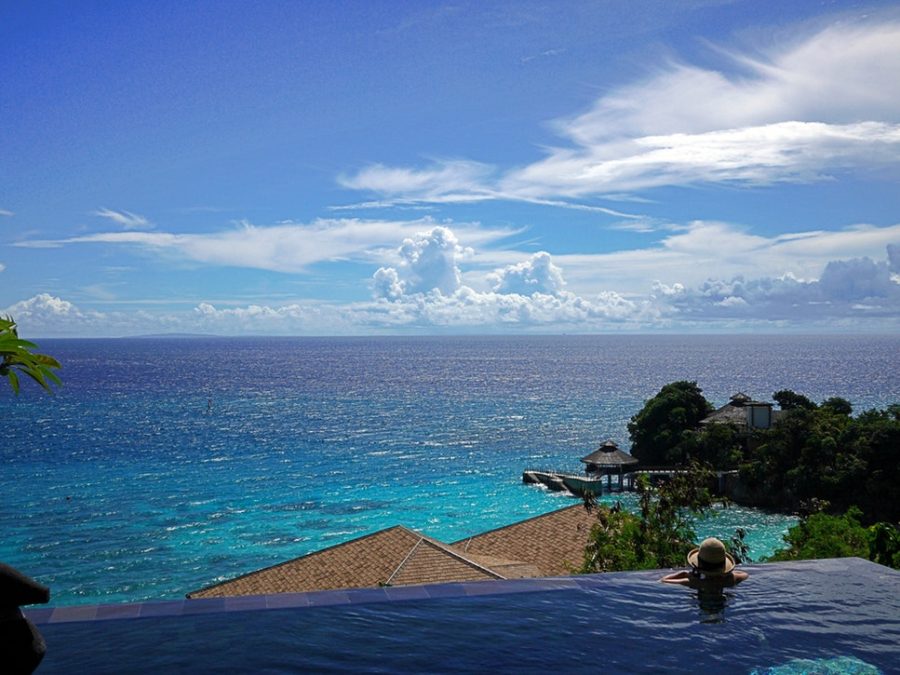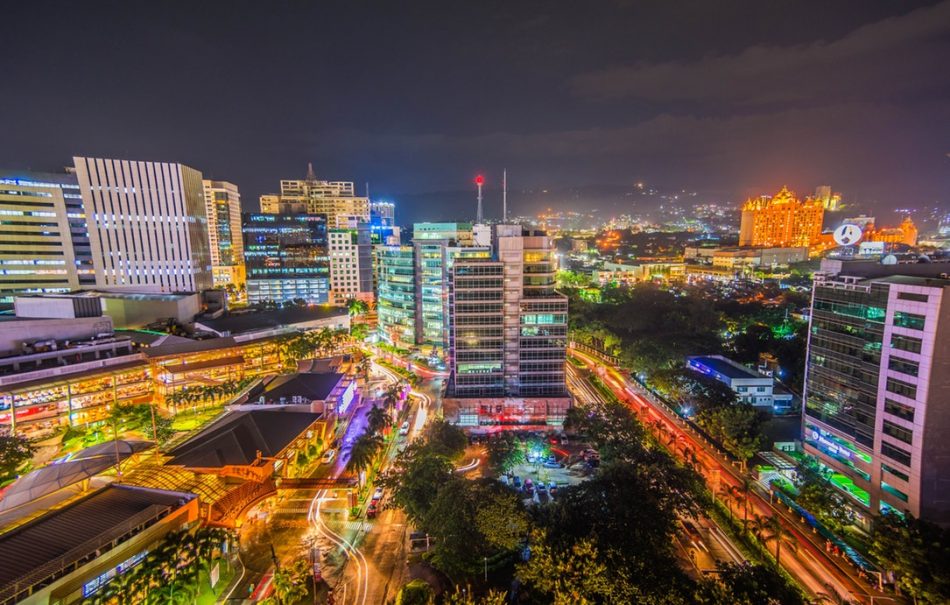Once a country unsound of the radar of most future expats, there’s now a considerable evolution in the Philippines becoming a famous expat hot spot. But let’s face it, it’s another thing actually to retire and live in the Philippines than touring. And like everything in life, there are pros and cons of retiring in the Philippines.
The Philippines is a fascinating country.But, there are also a few downsides living in this tropical country. So if you’re planning to retire in the Philippines this 2018, you need to prepare for in advance a few of these things. There should be a thorough evaluation whether the strange country is an ideal retirement spot or not for you.
The Pros And Cons Of Retiring In The Philippines
A travel website International Living, among other travel sites, recommend the Philippines as one of the best places to retire in 2018. At the same time, world travellers agree that this country is one of the best places to spend holidays.
The Global Retirement Index Ranks of International Living includes the Philippines as one of the top 25 retirement destinations worldwide. The basis for comparison measured are the benefits and discounts, climate, cost of living, fitting in, and healthcare. The country scores high well in the cost of living, fitting in, entertainment, and amenities categories.
Retiring, even in your home country, is a commitment. And planning to retire abroad is even riskier and more difficult. Spending a few holidays in the country and retiring are two different things.
Like any other life experiences, retirement in the Philippines also faces some problems. Here we will present the pros and cons of retiring in the Philippines.
Living In The Philippines Pros And Con
Pros
1) Affordable Cost Of Living

Photo by Brooke Cagle on Unsplash
The cost of living in the Philippines is a big pro. Your hard-earned dollars, pounds, or euros will go a long way even more than you can imagine.
According to the International Living, the Philippines doesn’t disappoint the expats in finding a lower cost of living. Moreover, in this country, any expat can already live in comfort on about $1,000 a month or less. This comfortable lifestyle can already provide dining out and country travel.
The average retired US employee can receive a benefit of $1,404 a month from his Social Security monthly as of a report last January 2018. The Social Security benefit alone can already cover the necessary cost of living in this country.
Foreign retirees don’t enjoy the affordable cost of housing, food, transportation, and labour costs anywhere in the country but also enjoys favourable currency exchange rate. It’s also never hard to find places to change your currency to Philippine peso. You can do that in hotels, banks, money exchanging stalls or offices, or even department stores. Furthermore, international credit cards are accepted anywhere from American Express, Bank American, Diners Club, Master Card, and Visa.
2) House Help
$1,000 is around 50,000 Philippine pesos, and in a country with low cost of living, you can’t just enjoy a comfortable life, but you can also hire househelp to cook, laundry, and clean the house for you. This benefit may be a luxury in other countries, but it’s a way of life here in the Philippines.
You can already fit in your budget of $1,000 to hire a house helper and driver. What more way to enjoy your retirement than to sit and enjoy what life has to offer.
3) Pleasant Climate

Photo by Sam Shin on Unsplash
The weather in the Philippines suits any retiree who loves to soak in the sun. All-year-round, the weather is warm and is hotter during summer days. It’s the pleasant climate for those approaching old age who can’t tolerate cold temperatures anymore.
Also, even when the country can sometimes be too hot and humid for an expat, a beach house with the cold sea air or an air conditioner is affordable. On the other hand, you can opt to live, like the other expats, in a little more chilled places like Baguio City or Tagaytay.
4) Beautiful Scenes

Photo by Jacky Lo on Unsplash
You will always be in awe whether from the lush greens of the mountains or to the colourful coral reefs in the sea. Even everything in between, you’ll always find the best tourist spots in the Philippines. The white sand and crystal blue water in Boracay, or the abundant bio-diverse place of limestone cliffs in El Nido in Palawan gain more attractions from foreigners all over the world.
You will always find beautiful places to visit in any region of the country. So, if you’re a globetrotter, Philippines is the right place for you to retire. You will always find a spot, favourite or not, worthy of your attention.
5) Filipinos

Photo by Ryoji Iwata on Unsplash
Filipino citizens love to smile and laugh about anything. Probably the most hospitable people on the planet. Their warmth can make any expat feels they’ve found their second home. Escape From America site claimed that Filipinos consistently is in the highest position in any happiness index survey.
Furthermore, you’ll find anywhere in the country that the people can speak and understand English. You’ll also see a lot of them can fluently speak the language like native speakers.
6) Conveniences

Photo by Zany Jadraque on Unsplash
Do you still imagine the Philippines with mud huts? Think again. This country can provide amenities of modern living to any retirees. Modern life is accessible with large malls, luxurious hotels and restaurants, internet, cable TV channels, and many more.
You can also find a lot of wellness choices, especially in bigger cities. You can choose facilities run by doctors with Western medicine background or something that provides therapy using Oriental medicine approach.
7) Food

Photo by Elli O. on Unsplash
The Philippines can provide preposterous divergent gastronomy. You can taste different specialties from different regions or provinces. Chinese and Spanish influences on their menu are apparent. Over the centuries, the Filipino dishes have adopted the influences of American, Arabic, Indians, Japanese, and even European dishes.
8) Outdoor Activities

Photo by ivan Torres on Unsplash
Surrounded by beaches and even mountains, you can always enjoy a fun and even healthy activities for hiking, mountain climbing, cycling, to swimming, kayaking, etc.
9) Language
You will never find yourself stuck in an area in the Philippines where nobody speaks nor understand English. Even when you don’t know any single Filipino word, it’s never hard to communicate with them. You may also be surprised that a lot of the locals, from senior citizens to students, can speak the English language fluently like a native speaker.
10) Expat Privileges and Employment
A government agency in the Philippines is set aside to invite foreign retirees. Expats can receive financial benefits. The benefits include discounts for the 60+ crowd, exemption from airport travel taxes, and duty-free import of $7,000 worth of household items.
Moreover, expat citizens can start a business in the Philippines. They’re also allowed to look for employment. And for those who have permanent residency, their retiree visa doesn’t expire so they can stay in the country for as long as they like. The retirees with permanent residency can also leave and return anytime without anymore reapplying for residency.
Cons
1) Lack of Infrastructure

Photo by Eldon Vince Isidro on Unsplash
There are a vast development and improvement of infrastructures in the capital and bigger cities. But the same cannot be described in other cities. Cellular phone coverage is almost in any corners. But, internet connections, roads, and other public utilities still need a lot of improvement.
Research well on the best place to retire in the Philippines because some areas have better infrastructures than the others. And there are still some locations that are more backward than you can imagine. In some areas you could experience prolong water shortages and power interruptions.
2) Different Culture
Wherever you plan to retire outside your home country, adjusting to another culture can be quite a chore. Also, the pace of life is a bit slower than what most expats are used to in a lifestyle.
3) Limited Health Care
The Philippines’ medical and healthcare facilities are already at par with other countries worldwide but only in larger cities. Unfortunately, it’s not the same in the other towns and provinces within the Philippines.
The Filipino doctors are often a graduate of universities abroad and affiliated with international medical associations. The medical costs are also less costly than your home country. But many foreigners complain that they can’t get the proper medical services from other smaller cities and provinces. But the government is addressing this current problem.
A lot of senior retirees, who do not necessarily require medical assistance, would prefer a peaceful and healthier environment in the countryside. However, it’s also essential to consider the immediate access and distance to medical facilities especially during emergencies.
4) Safety Concerns
The recent US Department of State’s Philippine Travel Advisory on January 24, 2018, warned the US citizens to be cautious in visiting the country because of crime, civil unrest, and terrorism. Furthermore, it stated that travelling to the Sulu Archipelago should never be considered. Included in the places to avoid to visit is Marawi City in Mindanao. Also advised is to reconsider going to Albay province due to the Mayon Volcano’s activity.
Any US retirees should enroll in the Department of State’s Smart Traveler Enrollment Program (STEP). The retiree will learn about security updates. Also, with the updates, they will know the nearest US embassy or consulate to contact in case of emergency.
The Bottom Line
Retirement in the Philippines is not a recommendation from a fellow tourist, a friend, nor something that you read. It’s a personal choice. Analyzing your needs and preferences and check how many boxes this country ticks for you.
This tropical country is home to many established expats. These retirees have found a better climate, affordable cost of living, comfortable lifestyle, change of scenery, and new cultural references. But deciding to retire anywhere in the world outside your home country takes a lot of research and careful planning.
Just like any other country, you will always find the pros and cons of retiring in the Philippines. You’d be the judge of that.
Sources:
https://internationalliving.com/annual-global-retirement-index/
https://www.investopedia.com/terms/s/socialsecurity.asp
http://www.escapefromamerica.com/2013/04/9-reasons-to-retire-in-the-philippines/
https://www.investopedia.com/terms/e/exemption.asp





Comments 1
Pingback: Retirement Visa in the Philippines Made Simple - Expat.com.ph